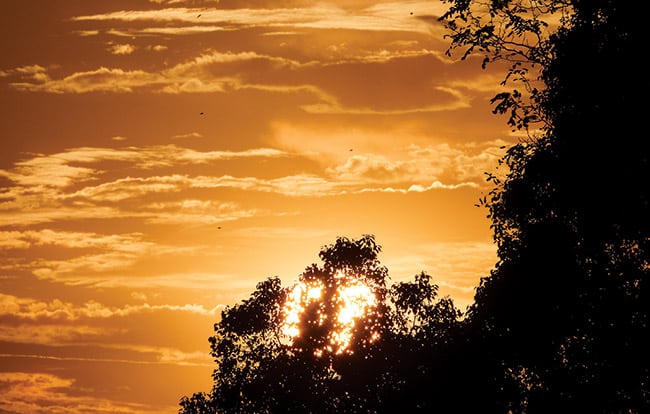Daylight saving on borrowed time?

by Andrew Alonzo | aalonzo@claremont-courier.com
At 2 a.m. next Sunday, November 6, some of us will be sleeping, partying, or working the graveyard shift. Whatever one is doing, all will experience perhaps the final part two of the longstanding biannual tradition of daylight saving time, when clocks will “fall back” from 2 to 1 a.m.
It’s a practice Americans have been familiar with since 1918, but this year’s tradition may be the last.
In March, the U.S. Senate, in a rare unanimous vote, approved the Sunshine Protection Act. If the House follows suit and President Biden signs the bill, the twice-a-year practice would, well, sunset.
Daylight saving was introduced as the Standard Time Act of 1918, adopted to save energy as the country was fighting World War I. During World War II, the U.S. adopted year-round daylight saving time, known as “war time,” again to save energy but also to increase productivity at defense manufacturing plants.
“Over the years numerous justifications were made for changing our clocks twice a year, most commonly and notably energy conservation,” said House Committee on Energy and Commerce Chairman Senator Frank Pallone Jr. (D-N.J.) earlier this year. “It was believed that extending light into the evening hours would help consumers pay less for electricity because they would not have to turn on the lights until later in the evening. However, modern luxuries, such as heating, air conditioning, and other appliances have changed that calculation.”
Over the last two decades the tradition has garnered both support and stark criticism. Nearly 30 states, including California, have introduced legislation that would end the practice.
Count Florida Republican Senator Marco Rubio as one of its critics. Rubio introduced the Sunshine Protection Act in March 2021. The bill is currently stalled in the House pending input from airline and broadcast companies as to its possible implications to their businesses.
According to a 2019 poll conducted by The Associated Press and National Opinion Research Center at the University of Chicago, about 71% of Americans said they preferred to no longer switch their clocks twice a year.
“If we can get this passed, we don’t have to do this stupidity anymore,” Rubio said in a March 2022 Reuters article. “Pardon the pun, but this is an idea whose time has come.” The story went on to say eliminating the time change would “help enable children to play outdoors later and reduce seasonal depression.”
During the subcommittee hearing earlier this year, Pallone Jr. touted numerous reasons for supporting a permanent switch to a uniform standard time.
“It becomes harder to justify when you consider the health and economic impacts associated with changing our clocks,” he said. “Studies have shown an increase in the rate of heart attacks and strokes in the two days immediately following the time change. Our children also suffer. Study after study shows the importance of a consistent full night sleep for our kids. The time change also impacts our economy. Employers report an almost six percent increase in workplace injuries in the days following the time change, and those injuries resulted in 67 percent more workdays lost. Studies have also shown that people simply are not as productive at work in the days following the time change. All of these side effects hurt our economy.”
Those working the graveyard shift on November 6 are reminded the Fair Labor Standards Act requires employees to be credited with all hours worked. For information about getting paid for the hour worked during the time change, contact the United States Department of Labor Wage and Hour’s West Covina division at (626) 966-0478. To reach the national line, call (866) 487-9243.
The COURIER reached out to Claremont Public Information Officer Bevin Handel to ask if there was anything daylight saving-related Claremonters should note.
“In terms of our internal city services, we adjust our light timers at the city parks and streetlights since it gets darker earlier,” Handel wrote in an email. “Not having lights would mean sports practices and activities would be affected. Park hours that are dusk to dawn are affected as well. Residents should check on the hours that the Wilderness Park is open. Our sanitation routes start at the same time in the morning, but it may feel later since it will be lighter earlier.
“From a public safety standpoint, drivers, bikers, and walkers should take extra caution in the early evenings since it will be darker when they leave work, school, or other activities. Make sure headlights are on or set to auto and make sure to have bike lights and reflective clothing.”









0 Comments